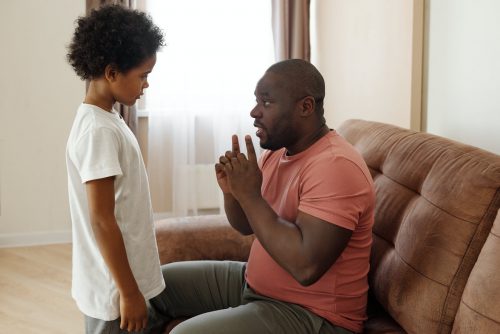When does it require help from a counselor and how does counseling for broods work? Learn more about family therapy here.

Explore The Role Of Family Therapy
What entails family therapy? Well, problems will always be present in groups we are part of, including our families. The causes of these problems may include differences in beliefs and positions, according to mental health treatment professionals or social workers. Moreover, other external factors like financial issues, family system, and mental illness such as depression or chronic illness are also possible reasons for family issues in family relationships.
Smoothen Out Creases In Relationships
Families should seek family therapy or counseling to resolve issues. Early action can prevent these difficulties from worsening. Mental health specialists, family psychotherapy, and couples therapy can assist in resolving family relationship issues in a few sessions.
Strengthen Relationships And Resolving Issues With Family Therapy
Read on and learn more about what brood counseling is, what the concepts are, and how it can help you build stronger relationships.
Family therapy is an intervention dedicated to families. It primarily encourages better communication with each other. A family therapist aims to help families address problems caused by repeated patterns of behavior in certain situations.
It usually uses cognitive-behavioral treatment and solution-focused services. Through these, it can help family members deal with their problems. Each session aims to identify various issues and come up with effective solutions.
The role of a counselor or therapist is to be a mediator in such sessions. They provide a safe place for everyone, parents and children, to express their feelings.
By helping members open up, brood counseling experts or a mental health provider will identify common problems. Specialists can also help form solutions that will help them resolve such issues.
Now that we know one goal of brood therapy, let’s move forward to help build better relationships. Here are some of the things you might get from having brood counseling.
Develop A Better Line Of Communication
In marriage and family therapy, it’s often observed that many common family arguments stem from inadequate communication. Effective communication skills are typically not taught in conventional education, leaving many feelings and emotions unexpressed, especially when involving other household members.
However, bottling up emotions doesn’t benefit anyone. The key to resolving family issues is to prioritize the development of improved communication. Marriage and family therapy plays a crucial role in enhancing this vital aspect.

Address Feelings Of Anger, Envy, Or Jealousy
Family counselors provide an avenue for other family members to speak out about their feelings, especially after major life changes like the death of loved ones. It helps clarify strong emotions and feelings toward each other. Moreover, it helps address feelings of anger, envy, jealousy, or other types of emotions through open communication.
An expert might suggest interventions that will foster better communication within a family. For example, having a fixed time for meals aids with communication issues. It helps a lot of time when everyone can talk about their day.
Develop Verbal And Nonverbal Communication
Communication can be both verbal and nonverbal. Family therapy teaches individuals how to understand each other’s verbal and nonverbal cues.
Nonverbal communication is a kind of communication that any household member can easily misinterpret. Everyone in a household needs to understand nonverbal cues. It also helps that each one develops an awareness of how their actions may be taken differently by household members.
Become An Active Listener
An essential part of communication is listening. Another goal of brood counseling is to make everyone an active listener. Everyone needs to try their best to understand the point of view of other household members.
Brood counseling teaches household members to air their sentiments and hear their family’s sentiments as well. Treat it with the utmost care because these are the types of family therapy that should be understood deeply.
There are many aspects of being an active listener that brood counseling can help you with.
Show Respect And Acknowledge Their Ideas
This is a vital part of active listening because it shows that you value the opinions of other household members. You can show your respect for your family members’ ideas and thoughts through verbal or nonverbal cues.

By saying, “I understand,” you’re showing a tremendous amount of acknowledgement and respect.
Address Serious Problems
Aside from the effort to resolve conflicts with each other, family therapy can address other serious problems. Addiction is one of these problems.
More often than not, addiction is an effect of inadequate coping mechanisms. When a person experiences extreme stress and emotions, they can turn to substance abuse to help them cope. Fortunately, family therapy can help the family member develop healthier coping mechanisms.
The goal is to teach the family how they can help drop unhealthy habits and form healthier ones. More so, as the whole family faces this problem together, they can be each other’s support system.
Having a solid support system is needed for anyone who’s recovering from addiction. It can equip everyone in the family with the right tools to cultivate an environment conducive to recovery.
Promote Behavioral Change
Having a better family relationship takes time, according to marriage and family therapists. Family members understand that they should actively reinforce habits that would promote healthier and more effective relationships with each other. These habits will encourage behavior changes in each individual, which will ultimately affect the whole family.

Commitment From Each Member
The American Association for Marriage and Family Therapy (AAMFT) stands as a leading professional organization within the marriage and family therapy field, providing crucial support, resources, and advocacy for its practitioners. A professional expert from the American Association for Marriage explains that forming good habits requires commitment from each member of the family.
Family roles garnered from systemic family therapy include bringing their best foot forward about specific matters such as financial problems, unhealthy patterns, improving communication, and other challenging situations. The unit must learn to address and solve problems or address specific issues, whether short-term or long-term.
There would always be conflict in the family, but being a family means constantly trying to understand each other. The treatment will help you build deeper and healthier relationships with your family by imparting coping skills on how to communicate with each other effectively. It will provide a better family’s strengths during a treatment plan.
Support Each Other Through Highs And Lows No Matter What
Remember that all families have issues, but what makes a family perfect is its ability to support one another through highs and lows and share love and respect. If you think there are issues that your family can’t handle on your own, consider therapy. Who knows – perhaps family therapy may be the only solution and a good fit for more loving connections with friends and families. Visit a Cleveland clinic near you to start building strong connections.
Frequently Asked Questions
What does family therapy involve?
Family therapy is a form of psychotherapy that focuses on improving communication and resolving conflicts within a family unit. It involves assessment, goal setting, and the use of various therapeutic techniques to address specific issues or challenges the family is facing. Sessions typically include all willing family members. The therapist guides discussions and provides strategies for healthier communication and relationships. Family therapy can be effective for a wide range of mental health issues and aims to create a more harmonious and functional family dynamic.
What is the most common type of family therapy?
The most common type of family therapy is Structural Family Therapy (SFT), which falls under the umbrella of various types of therapy. Developed by Salvador Minuchin, SFT focuses on examining and restructuring the family’s structure, roles, and boundaries to create healthier dynamics.
What is the primary goal of family therapy?
The primary goal of family therapy is to improve the overall functioning and mental health well-being of the family unit. It aims to enhance communication, resolve conflicts, build healthier relationships, restructure dysfunctional dynamics, and support individual mental health within the family context. The active participation of all willing family members is essential in achieving these goals, with the therapists serving as guides and facilitators throughout the process.
What are the four stages of family counseling?
Family counseling, grounded in family systems theory, comprises four stages: assessment, goal setting, intervention, and termination. It focuses on assessing the family’s dynamics, setting therapeutic goals to improve mental health and relationships, addressing these dynamics through interventions, and concluding with a review of progress and plans for follow-up support for enhanced mental health and family well-being.
How effective is family therapy?
Family therapy, facilitated by experienced family therapists, can be highly effective for various issues, including communication difficulties, relationship conflicts, and mental health concerns. It takes a holistic approach, striving to improve family dynamics and enhance communication, resulting in lasting positive changes when families actively engage in the process.
What is an example of family therapy?
In family therapy, a family sought help for communication and conflict issues. The family therapist assessed their concerns and guided them in improving communication skills, understanding underlying issues, and reducing conflicts over several sessions. The therapy resulted in a more harmonious and connected household, emphasizing the effectiveness of family therapy when facilitated by a skilled family therapist in addressing relational issues.
What is family therapy and its benefits?
What do I need to know before family therapy?
What is the importance of family therapy and counseling?
Who is the client in family counseling?
